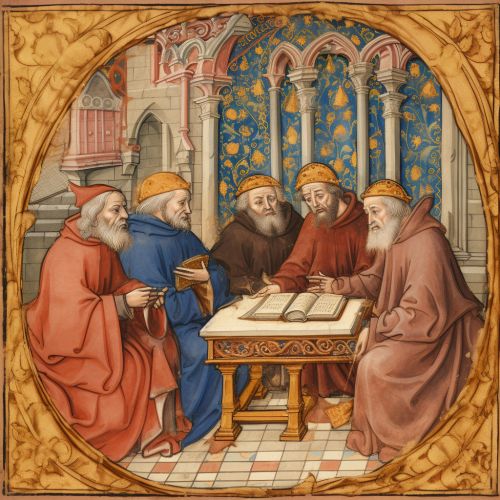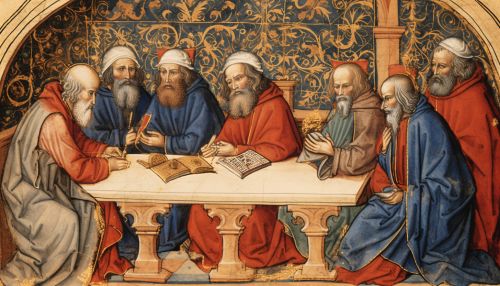Medieval Philosophy
Introduction
Medieval philosophy refers to the philosophical thought of the Middle Ages, a period that roughly extends from the fall of the Western Roman Empire in the 5th century to the Renaissance in the 15th century. This period is characterized by the integration of Christian theological thought with the philosophical traditions of antiquity, resulting in a rich and complex body of work that continues to influence contemporary philosophy.


Historical Context
The Middle Ages were a time of significant cultural and intellectual change. The fall of the Western Roman Empire led to the loss of much of the philosophical knowledge of the ancient world. However, the Christian church, which had become the dominant institution in Europe, preserved and developed many of these ideas. The philosophical thought of this period is often divided into three stages: the Early Middle Ages, the High Middle Ages, and the Late Middle Ages.
Early Middle Ages (5th to 10th Century)
During the Early Middle Ages, also known as the Dark Ages, much of the philosophical work was focused on the interpretation and integration of Christian theology with the philosophical traditions of antiquity. This period saw the emergence of figures such as Augustine of Hippo, whose works, such as Confessions and City of God, combined Christian theology with Platonic philosophy.
High Middle Ages (11th to 13th Century)
The High Middle Ages was a period of significant philosophical development. This period saw the emergence of Scholasticism, a method of learning that placed a strong emphasis on dialectical reasoning. Key figures of this period include Thomas Aquinas, Duns Scotus, and William of Ockham. Aquinas, in particular, made significant contributions to the development of Natural theology and is considered one of the greatest philosophers of this period.
Late Middle Ages (14th to 15th Century)
The Late Middle Ages saw the rise of Humanism, a philosophical movement that emphasized the value and agency of human beings. This period also saw the development of Nominalism, a philosophical view that denies the existence of universals and abstract entities. Key figures of this period include John Wycliffe and Jan Hus, who were both influential in the development of early Protestant thought.
Key Concepts and Themes
Medieval philosophy is characterized by several key concepts and themes. These include the nature of God and the universe, the relationship between faith and reason, the problem of evil, and the nature of knowledge and truth.
Influence and Legacy
The influence of medieval philosophy can be seen in many areas of contemporary thought. The philosophical and theological ideas developed during this period continue to shape the fields of metaphysics, epistemology, and ethics. Furthermore, the methods of dialectical reasoning developed by the Scholastics continue to be used in contemporary philosophical discourse.
See Also
Philosophy of Religion History of Philosophy Scholastic Philosophy
